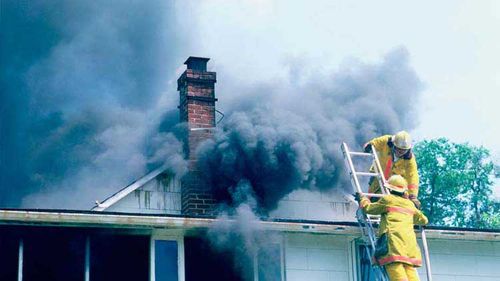Renters Insurance in and around Indianapolis
Looking for renters insurance in Indianapolis?
Coverage for what's yours, in your rented home

Would you like to create a personalized renters quote?
- Indianapolis
- Carmel
- Meridian Hills
- Fishers
- Zionsville
- Rocky Ripple
- McCordsville
- Lawrence
- Fountain Square
- Irvington
- Warrn Park
- Cumberland
- Fortville
- Brownsburg
- Clermont
- Avon
- Hamilton County
- Marion County
- Boone County
- Hendrick County
- Westfiield
- Noblesville
- Pendleton
- Anderson
Home Is Where Your Heart Is
Even when you rent a place to live you still have plenty of responsibility. You want to make sure what you own is protected in the event of some unexpected catastrophe or damage. And you also need liability protection for friends or visitors who might hurt themselves on your property. State Farm Agent Rick Smith is ready to help you handle the unexpected with dependable coverage for your renters insurance needs. Such attentive service is what sets State Farm apart from the rest. And it won’t stop once your policy is signed. If if trouble knocks on your door, Rick Smith can help you submit your claim. Keep your home in a rental-sweet-rental state with State Farm!
Looking for renters insurance in Indianapolis?
Coverage for what's yours, in your rented home

Renters Insurance You Can Count On
No one knows what tomorrow will bring. That’s why it makes good sense to plan for the unexpected with a State Farm renters policy. Renters insurance protects the things inside the place you call home with coverage. In case of a break-in or vandalism, some of your most treasured items could have damage. Without insurance to cover your possessions, you might not be able to replace your valuables. It's scary to think that in one moment, you could risk losing all your possessions. Despite all that could go wrong, State Farm Agent Rick Smith is ready to help.Rick Smith can help offer options for the level of coverage you have in mind. You can even include protection for valuables when they are outside of your home. For example, if a pipe suddenly bursts in the unit above you and damages your furniture, your personal property is damaged by a fire or your car is stolen with your computer inside it, Agent Rick Smith can be there to help you submit your claim and help your life go right again.
It's always a good idea to make sure you're prepared. Reach out to State Farm agent Rick Smith for help understanding savings options for your rented unit.
Have More Questions About Renters Insurance?
Call Rick at (317) 582-1000 or visit our FAQ page.
Simple Insights®
What to do after a house fire

What to do after a house fire
Consider these tips to help you and your family recover after a house fire.
How does a home insurance deductible work?

How does a home insurance deductible work?
Learn how the homeowners insurance deductible chosen can make a difference with your homeowners premium.
Simple Insights®
What to do after a house fire

What to do after a house fire
Consider these tips to help you and your family recover after a house fire.
How does a home insurance deductible work?

How does a home insurance deductible work?
Learn how the homeowners insurance deductible chosen can make a difference with your homeowners premium.
